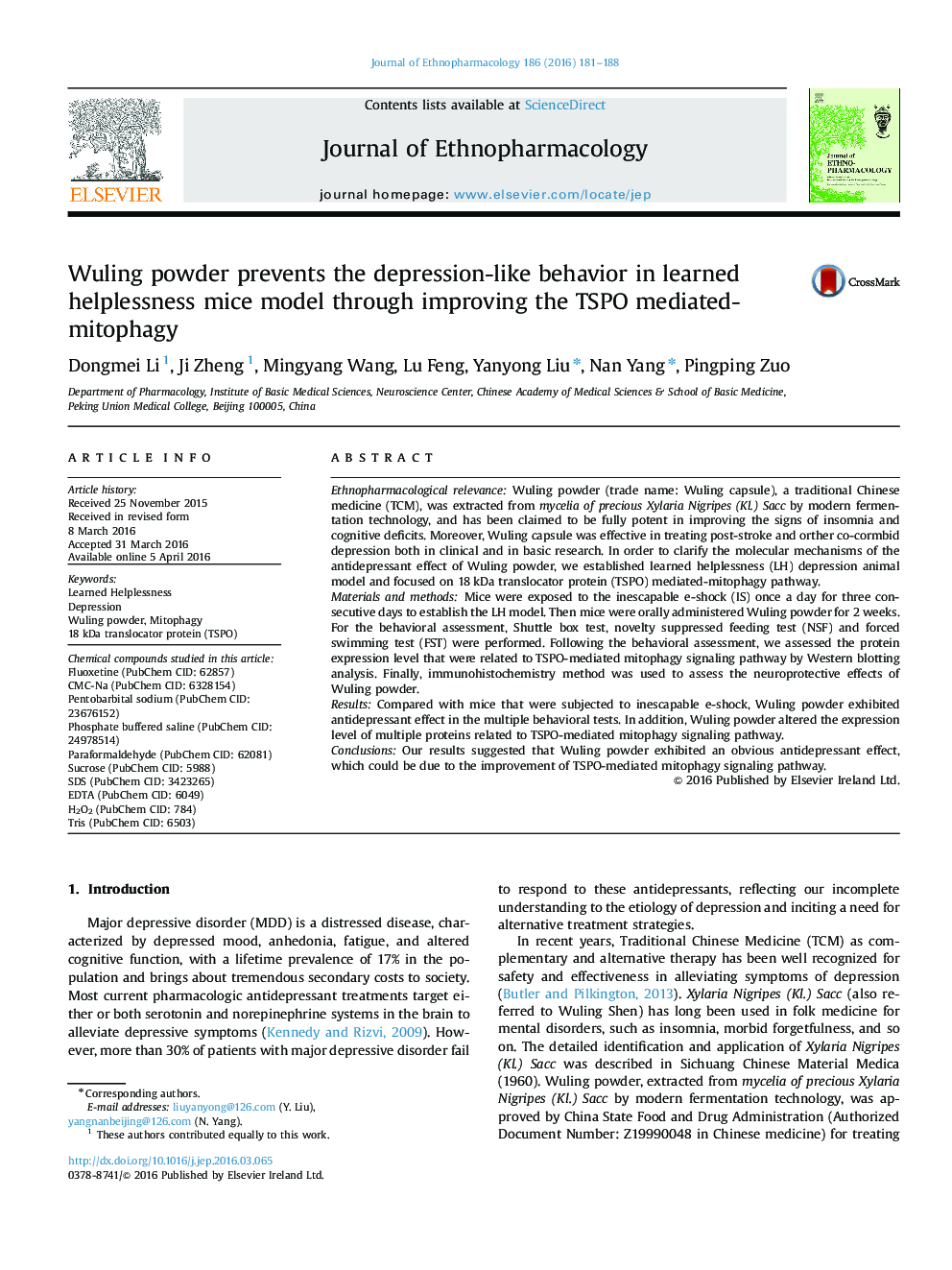| کد مقاله | کد نشریه | سال انتشار | مقاله انگلیسی | نسخه تمام متن |
|---|---|---|---|---|
| 2544711 | 1560376 | 2016 | 8 صفحه PDF | دانلود رایگان |

Ethnopharmacological relevanceWuling powder (trade name: Wuling capsule), a traditional Chinese medicine (TCM), was extracted from mycelia of precious Xylaria Nigripes (Kl.) Sacc by modern fermentation technology, and has been claimed to be fully potent in improving the signs of insomnia and cognitive deficits. Moreover, Wuling capsule was effective in treating post-stroke and orther co-cormbid depression both in clinical and in basic research. In order to clarify the molecular mechanisms of the antidepressant effect of Wuling powder, we established learned helplessness (LH) depression animal model and focused on 18 kDa translocator protein (TSPO) mediated-mitophagy pathway.Materials and methodsMice were exposed to the inescapable e-shock (IS) once a day for three consecutive days to establish the LH model. Then mice were orally administered Wuling powder for 2 weeks. For the behavioral assessment, Shuttle box test, novelty suppressed feeding test (NSF) and forced swimming test (FST) were performed. Following the behavioral assessment, we assessed the protein expression level that were related to TSPO-mediated mitophagy signaling pathway by Western blotting analysis. Finally, immunohistochemistry method was used to assess the neuroprotective effects of Wuling powder.ResultsCompared with mice that were subjected to inescapable e-shock, Wuling powder exhibited antidepressant effect in the multiple behavioral tests. In addition, Wuling powder altered the expression level of multiple proteins related to TSPO-mediated mitophagy signaling pathway.ConclusionsOur results suggested that Wuling powder exhibited an obvious antidepressant effect, which could be due to the improvement of TSPO-mediated mitophagy signaling pathway.
Journal: Journal of Ethnopharmacology - Volume 186, 20 June 2016, Pages 181–188